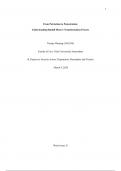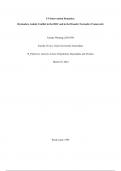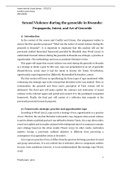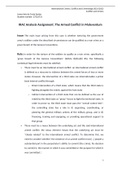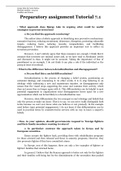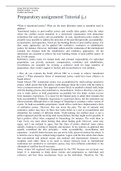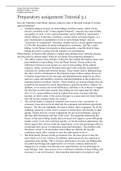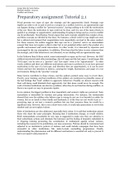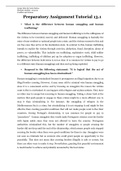Vrije Universiteit Amsterdam (VU) • international crimes, conflict and criminology
Meest recente samenvattingen voor de opleiding international crimes, conflict and criminology op de Vrije Universiteit Amsterdam (VU). Op zoek naar een samenvatting voor international crimes, conflict and criminology? Wij hebben diverse samenvattingen voor de opleiding international crimes, conflict and criminology op de Vrije Universiteit Amsterdam (VU).
-
19
- 0
-
2
Vakken international crimes, conflict and criminology op de Vrije Universiteit Amsterdam (VU)
Er zijn samenvattingen beschikbaar voor de volgende vakken van international crimes, conflict and criminology op Vrije Universiteit Amsterdam (VU)
Nieuwste samenvattingen Vrije Universiteit Amsterdam (VU) • international crimes, conflict and criminology
Perpetrator assignment (graded 7,5) of course Atrocity Actors; Perpetrators, Bystanders and Victims. Research question: How did Rudolf Hoess become a perpetrator of international crimes?
Bystander assignment (graded 7,5) for the course Atrocity Actors; Perpetrators, Bystanders and Victims. Papers research question: How can we explain the decisions of those working at the UN as bystanders to the war in the DRC as told in the documentary “Peacekeepers”?
This essay used Wood's considerations about sexual violence in conflict circumstances to analyse the rapes occurred in Rwanda during the genocide
This assignment was graded 86/100 IRAC assignment: applying the legal definition of a war crime to a practical case where there is not an International Armed Conflict
▪ What approach does Bjørgo take in arguing what could be useful strategies to prevent terrorism? o Do you find his approach convincing? ▪ What is the difference between deradicalization and disengagement? o Do you find this a useful differentiation? ▪ How, in your opinion, should governments respond to ‘foreign fighters’ and their family members wanting to return? o In particular: contrast the approach taken in Kenya and by European countries. ▪ What do you personally...
▪ What is transitional justice? What are the main dilemmas states in transition need to address? ▪ How do you evaluate the South African TRC as a means to achieve transitional justice? ▪ What alternative forms of transitional justice could have been effective in South Africa?
▪ How do Valentino’s and Straus’ subjects of analysis relate to the legal concept of ‘crimes against humanity’? ▪ What families of theories that attempt to explain mass killings does Valentino discuss and why does he dismiss them? o What do you think of his proposed alternative? ▪ What are the main similarities and differences in Valentino’s and Straus’ explanation of causes and escalation of atrocities?
What is Wood’s argument against the distinction between “strategic” and “opportunistic” rape and what does she propose instead? ▪ Based on the accounts detailed in the Eriksson Baaz & Stern article, would you qualify rape by soldiers in the DRC as predominantly strategic, opportunistic, or something else? ▪ What do the articles by Wood and Eriksson Baaz & Stern learn about effective ways to prevent wartime sexual violence?
This assignment answers the following questions: What is the difference between human smuggling and human trafficking? ▪ Respond to the following statement: “It is logical that the act of human smuggling has been criminalized.” ▪ To what extent does externalization of migration controls frustrate the business model of human smugglers and traffickers? o Do you consider this externalization to be a good development?

